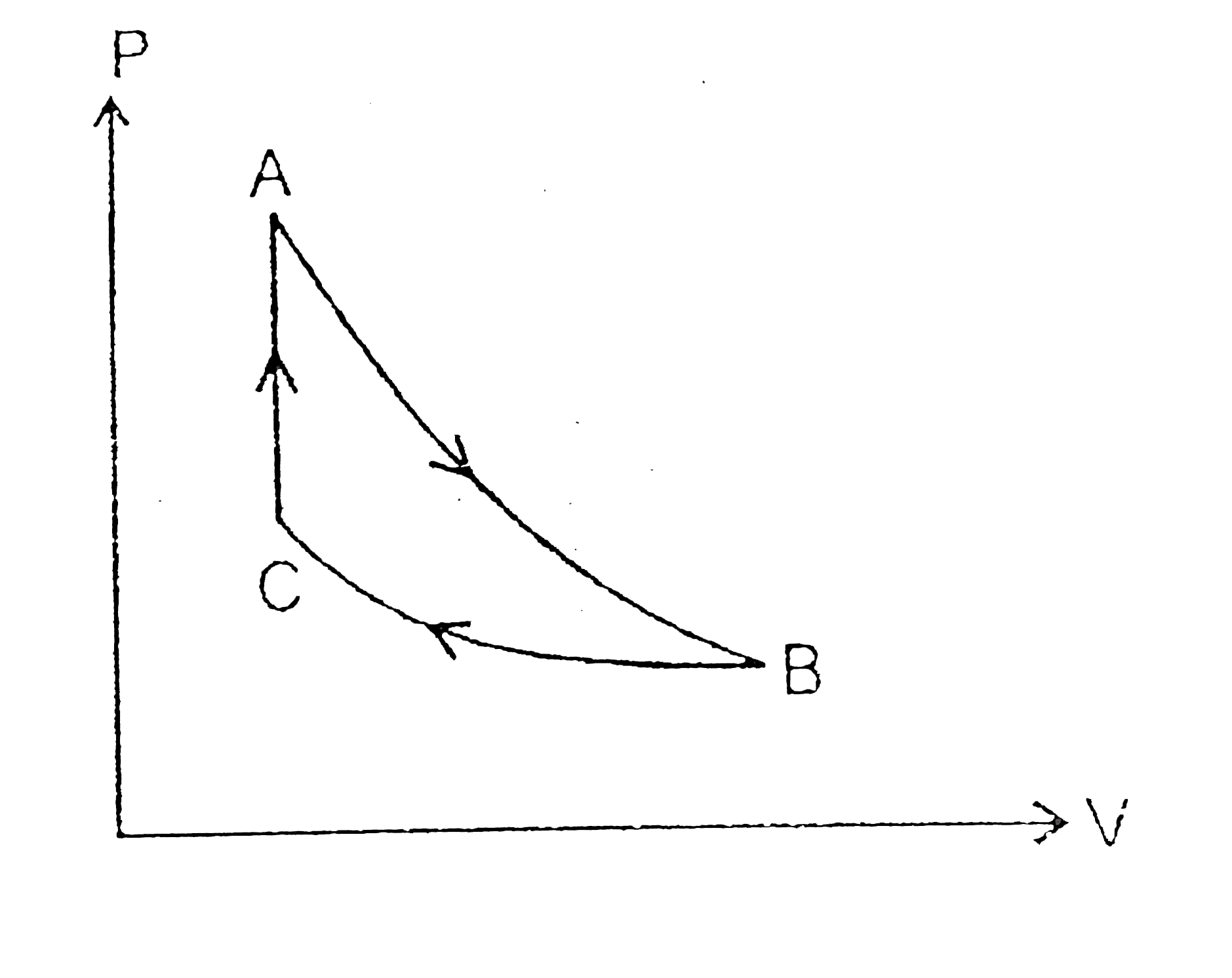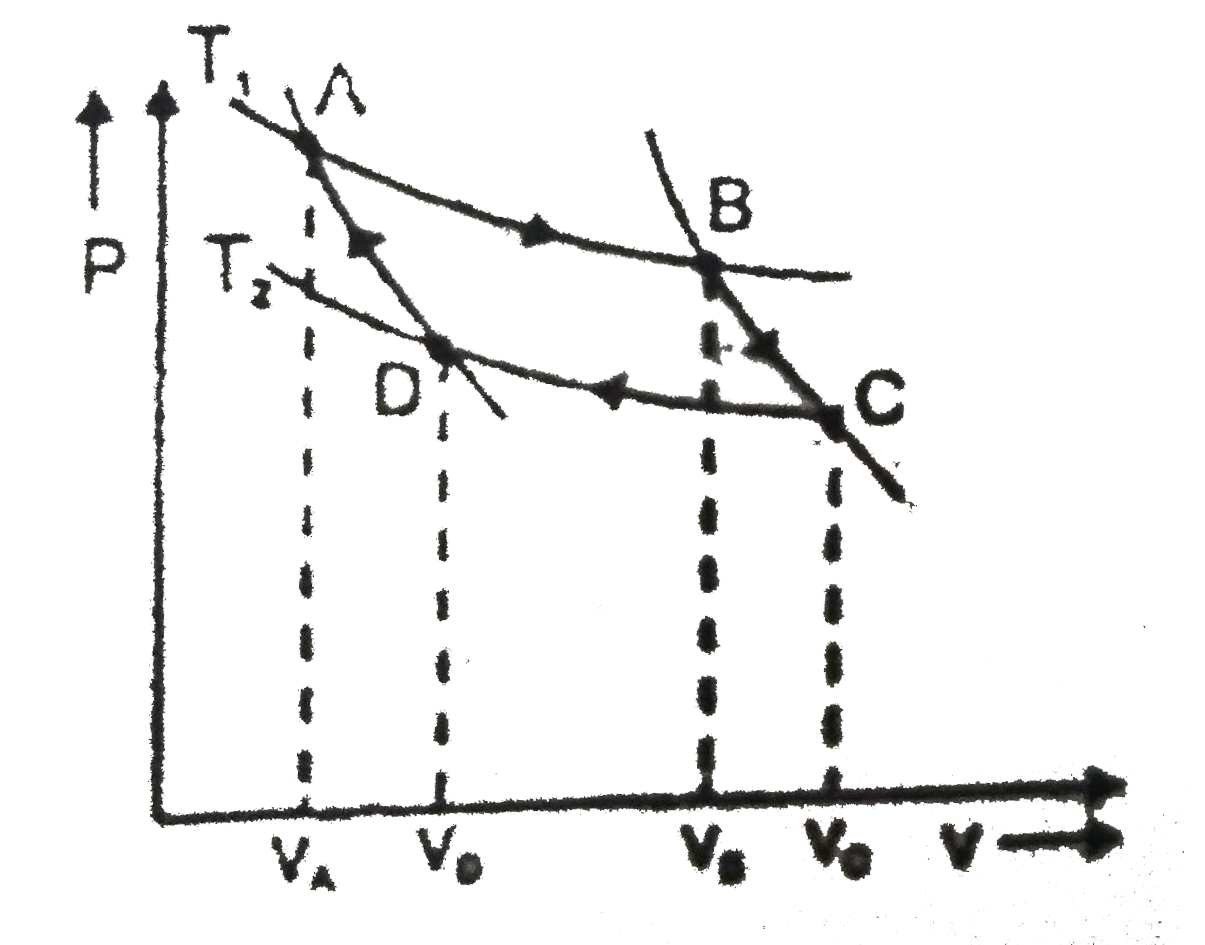
An ideal gas undergoes a cyclic process, in which one process is isochoric, one process is isothermal and one process is adiabatic. During the isothermal process, 40 J heat is released by the gas, and during the isochoric process, 80 J heat is absorbed by the gas. if work done by the gas during adiabatic process is W1 and during isothermal process is W2 then the magnitude of W1W2 will be equal to:
Video Solution
Text Solution
The correct Answer is:B
For isothermal process
W2=QBC=−40J
for complete cycle
Qcycle=Wcycle
−40+80+0=−40+0+W
W1=80J
|
Similar Questions
Knowledge Check
An ideal gas system undergoes an isothermal process, then the work done during the process is
AnRTln(V2V1)BnRTln(V1V2)C2nRTln(V2V1)D2nRTln(V1V2)The specific heat of a gas in an isothermal process is
AinfiniteBzeroCnegativeDremains constant
When the gas is ideal and process is isothermal, then
View SolutionWhen the gas is ideal and process is isothermal, then
View SolutionAn ideal gas undergoes isothermal expansion at constant pressure . During the process.
View SolutionIn an isothermal process for an ideal gas
View SolutionAn ideal gas undergoes a process consisting of adiabatic and isothermal process only as shown in the figure. Then :

View SolutionFor an isothermal process
View Solution

